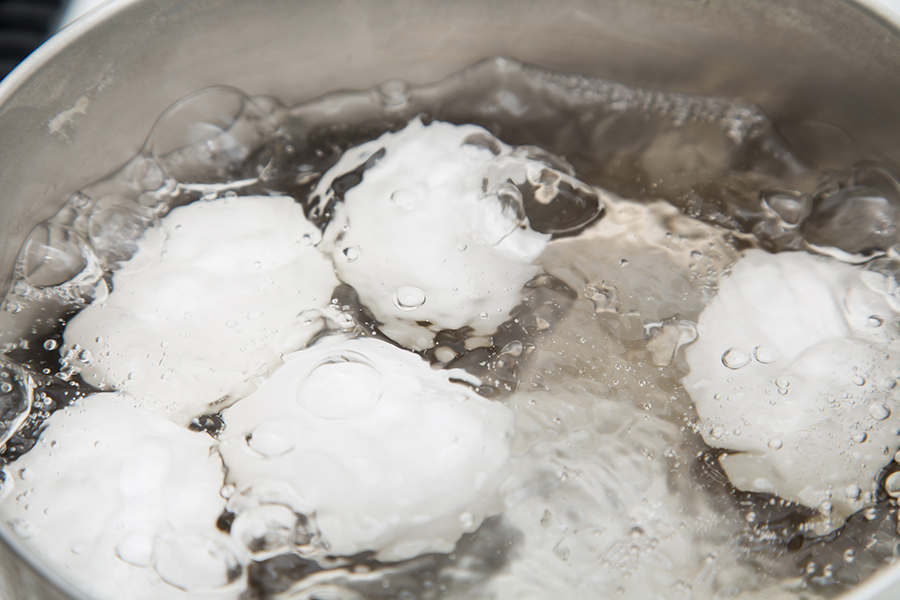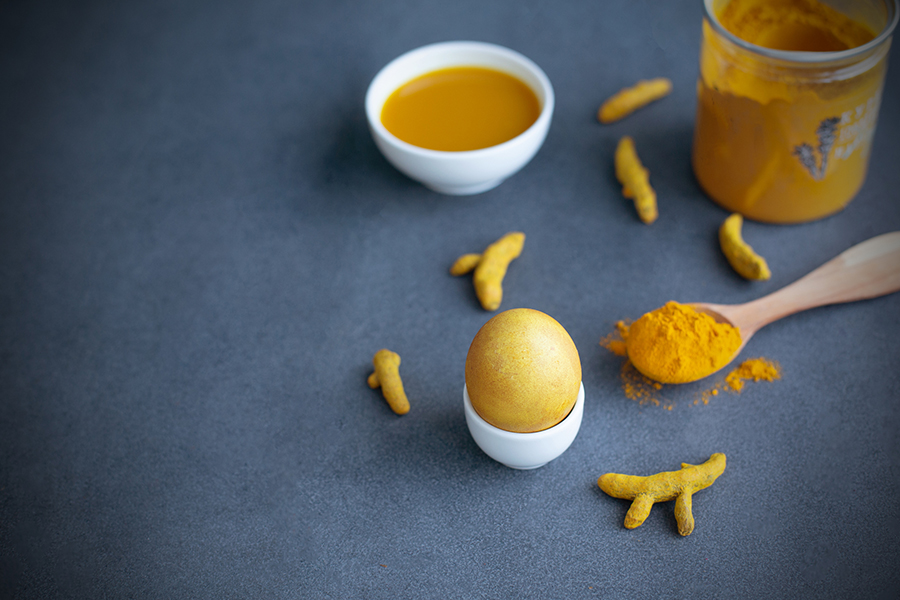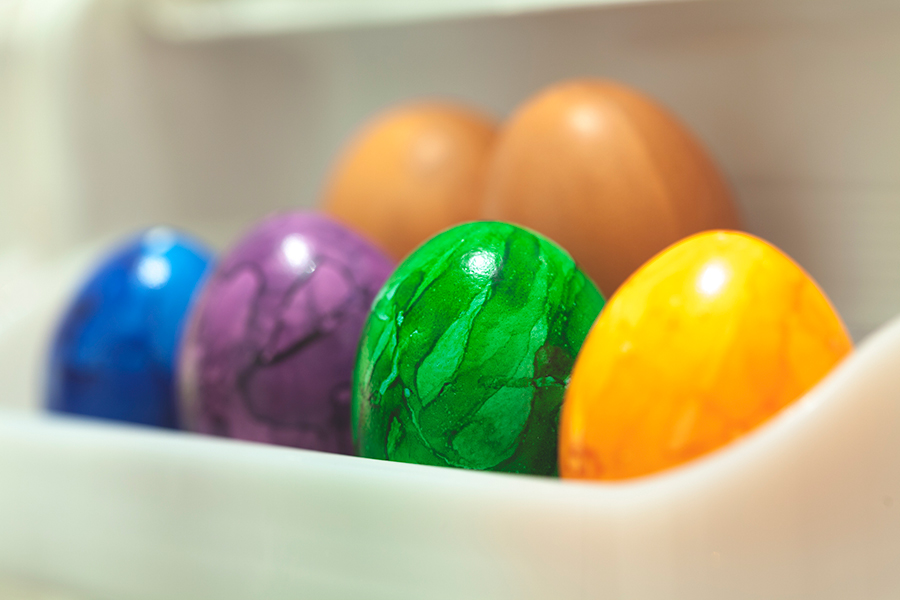How to avoid grey yolks, messy peeling and stomach aches
Easter eggs just might be the funnest food ever. Not only can you decorate them, but you can hide them, hunt them and eat them. With almost no other dish – like a plate of spaghetti, for example – would such good times be had by all.
But just because it’s fun doesn’t mean care should not be taken in its preparation. That preparation might seem simple enough, but a good egg should also not be grey inside, come away with the shell during peeling or give you food poisoning.
To check all those boxes and more, we asked Culinary Arts instructor Curtis Jones (class of ’08) how to ensure the holiday (particularly breakfast) goes eggs-actly as it should.
How to perfectly boil an egg

“It’s pretty simple,” says Jones – but there’s more to it than you might think.
Step 1: Jones fills a pot with cold water and adds the eggs. The water should be about an inch above the eggs so that evaporation during boiling doesn’t expose them and lead to uneven cooking.
Step 2: Add a teaspoon of vinegar. “If we do have eggs that crack, the egg white will coagulate right away and you won’t get egg in the water,” says Jones. No mess. Also, the egg will be sealed and can still be decorated.
Step 3: Bring to a boil, remove the pot from heat, cover and allow to sit for 10 to 12 minutes. “This should prevent that grey ring you have around the yolk when they’re overboiled,” says Jones.
Step 4: Shock them under cold water to stop the cooking process. Move the entire pot as is to the sink and add cold water, allowing it to displace the boiled water. Once the outside of the egg is cool to the touch, it’s ready to decorate.
Fresh is not best
“This is the one time that we don’t want the freshest eggs possible,” says Jones.
Fresh eggs are the ones that tend to come away with the shell. “They’re harder to peel. You want your eggs to be about a week old.”
Dare to decorate differently

Store-bought decorating kits are inexpensive and effective, but consider experimenting with natural dyes, suggests Jones. “You can play with some spinach powder, beet powder and turmeric.”
Look for powders in bulk stores. Add three tablespoons of any of them to six cups of boiling water with three tablespoons of vinegar.
Store them safely

As with any food, keep cooked eggs out of the “danger zone” for prolonged periods, warns Jones – that is, 4 to 60 C, which fosters the rapid growth of bacteria that cause food-bourne illness. Leaving them out for the duration of the hunt is fine, but once that's done, move uneaten eggs into the fridge. Cold, they’ll last a week.
Jones also suggests storing them in an airtight container. “You don’t want them to stink up your whole fridge.” They may be pretty, and they may be perfect – and a whole lot of fun – but they’re still eggs.
Banner image by tongwongboot/istockphoto.com